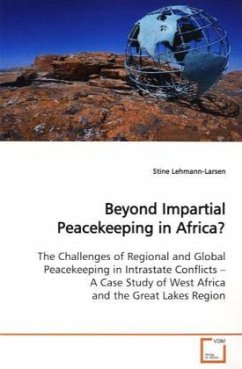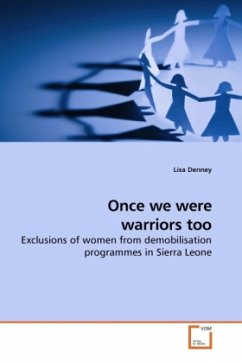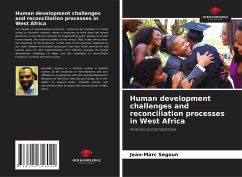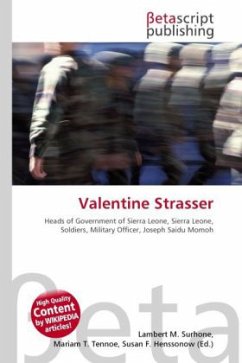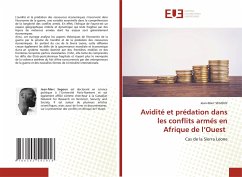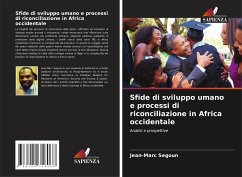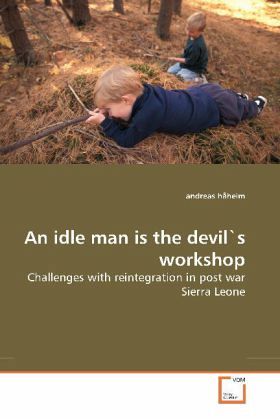
An idle man is the devil's workshop
Challenges with reintegration in post war Sierra Leone
Versandkostenfrei!
Versandfertig in 6-10 Tagen
39,99 €
inkl. MwSt.

PAYBACK Punkte
20 °P sammeln!
When wars or armed conflicts end, or at least when violence on the ground decreases, hope for sustainable peace building grows. UN General Secretary Ban Ki Moon pointed out the importance of the immediate post war period in a report to the Security Council on June 11, 2009: The immediate post war period offers a window of opportunity to provide basic security, deliver peace dividends, shore up and build confidence in the political process, and strengthen core national capacity to lead peace building efforts. Ban Ki Moon talks about opportunities, but in my findings I found that an opportunity ...
When wars or armed conflicts end, or at least when violence on the ground decreases, hope for sustainable peace building grows. UN General Secretary Ban Ki Moon pointed out the importance of the immediate post war period in a report to the Security Council on June 11, 2009: The immediate post war period offers a window of opportunity to provide basic security, deliver peace dividends, shore up and build confidence in the political process, and strengthen core national capacity to lead peace building efforts. Ban Ki Moon talks about opportunities, but in my findings I found that an opportunity also presents challenges. A series of urgent needs have to be answered by local and external actors in the immediate post war period. Three issues are on top of the agenda: disarmament, demobilization and reintegration of ex combatants (DDR), rehabilitation of the economic and social infrastructure, and the reconstruction of social relations, and most of all mental support for victims. The aim of this study was to gain new knowledge about one of these challenges; the R-in DRR, and to what extent the reintegration can affect a post -war country.



